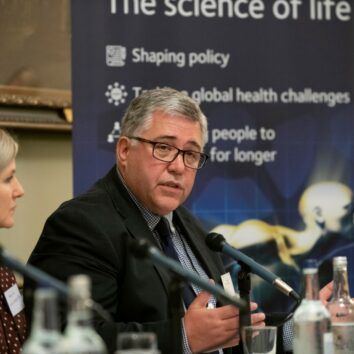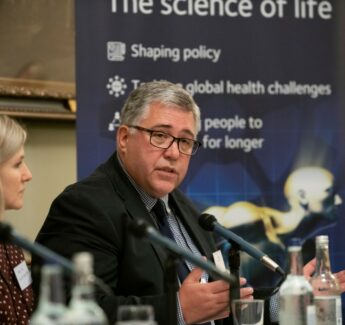Supporting the development of public health guidance for long COVID
The Physiological Society and the Intensive Care Society are establishing a Long Covid Advisory Panel, co-chaired by Professor Mike Tipton and Dr Zudin Puthucheary.
The Group will provide scientific advice in the production of a report aimed at policymakers focused on clear public policy recommendations to tackle ‘long COVID’ and improve public health. The project will:
• Summarise key physiological evidence around ‘long COVID’1 (and gaps in the evidence base)
• Identify physiologically evidenced mitigations/strategies
• Make recommendations to Government and public health bodies
The final project output will be a short (approximately 16 pages) report with an intended audience of UK public health authorities, at both a national and local level.
What are the problems?
The Office of National Statistics (ONS) estimated that in July 2021, 945,000 people living in private households in the UK (1.46% of the population) were experiencing self-reported “long COVID”. The most frequently self-reported symptoms included fatigue, shortness of breath and muscle ache but patients also reported fever, nausea, vomiting and memory loss or confusion. Women were nearly twice as likely to report ‘long COVID’ symptoms and symptoms were most reported among those aged between 50-69 although all ages from 2-70+ were represented in the sample.2
Despite this clear impact of long COVID, it does not currently have an understood mechanism nor fixed diagnostic criteria. As such, we do not know who is most at risk of developing long COVID or what the most effective treatment methods are.
Coordinating with frontline clinicians and research experts, The Physiological Society is working to identify the most up-to-date evidence on long COVID and its impact on different systems of the body, as well as develop some recommendations to meet existing gaps in the evidence base and support public health bodies manage the impact of long COVID on the wider population.
Clinical colleagues have identified a series of interest areas to better understand long COVID. In each of these areas, we will first identify the mechanisms and conditions impacted by COVID-19 infection, why these symptoms persist beyond the acute infection phase, evidence gaps and likely successful treatment routes.
















